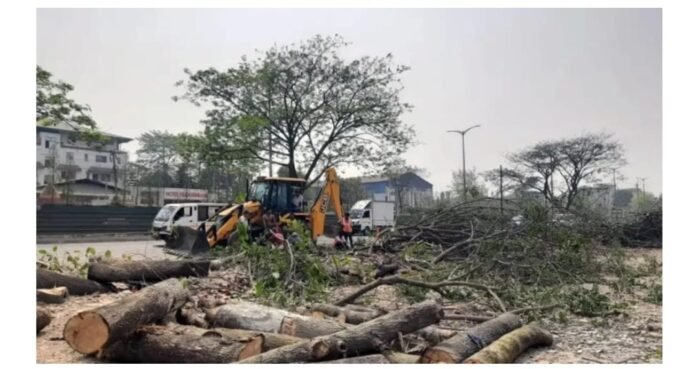The tree felling for infrastructure projects in Guwahati, Assam, and the resulting environmental concerns are certainly significant issues. Deforestation and loss of green cover can have detrimental effects on the local ecosystem, wildlife habitats, and overall environmental balance.
Trees play a crucial role in maintaining ecological stability by absorbing carbon dioxide, releasing oxygen, and providing a habitat for various species. They also help in controlling soil erosion, regulating temperature, and improving air quality. Therefore, the indiscriminate felling of trees can lead to several negative consequences.
While infrastructure development is necessary for the progress of any city, it is crucial to strike a balance between development and environmental conservation. Sustainable practices and environmental impact assessments should be carried out to minimize the damage caused by tree felling. It is important to explore alternatives like transplanting trees or compensatory afforestation to mitigate the impact of deforestation.
To address the concerns raised by environmentalists and the public, it is important for authorities and policymakers to engage in transparent and participatory decision-making processes. Involving local communities, environmental experts, and conservation organizations in discussions and planning can help identify sustainable solutions and ensure that environmental concerns are adequately addressed.
Furthermore, the government should prioritize the implementation of strict regulations and monitoring mechanisms to prevent illegal tree felling. Promoting awareness and educating the public about the importance of trees and the environment can also foster a sense of responsibility and encourage sustainable practices among citizens.
Ultimately, the goal should be to achieve a balance between development and environmental conservation, taking into consideration the long-term impacts of infrastructure projects on the local ecosystem. By adopting sustainable practices and involving all stakeholders in the decision-making process, it is possible to address environmental concerns and ensure a greener and more sustainable future for Guwahati and its residents.




